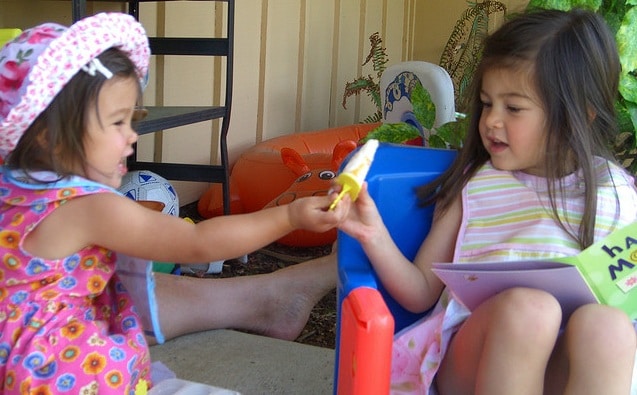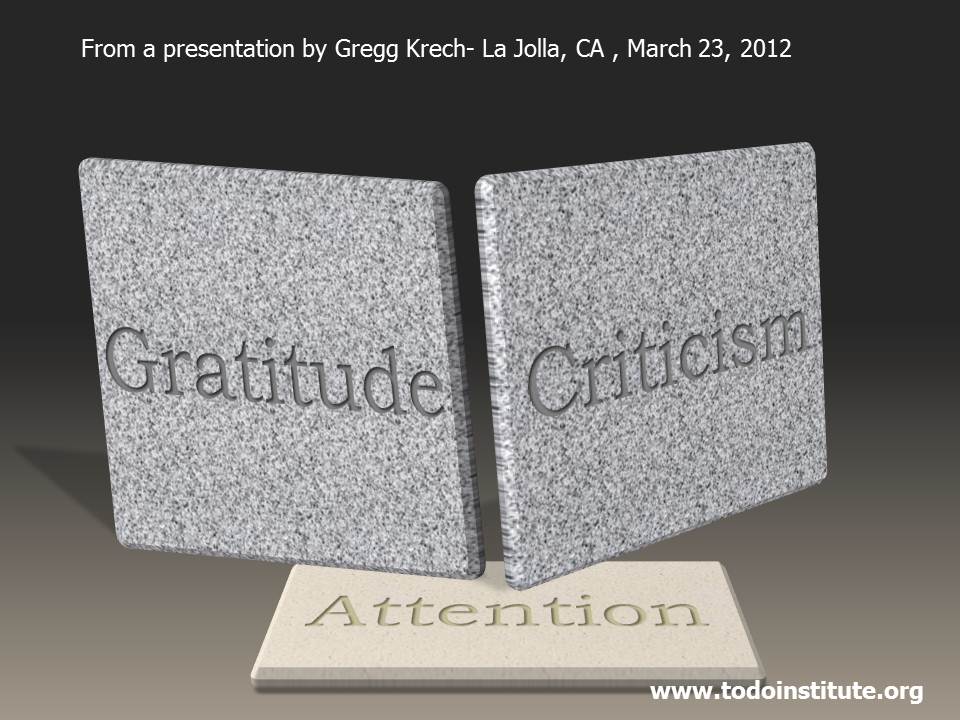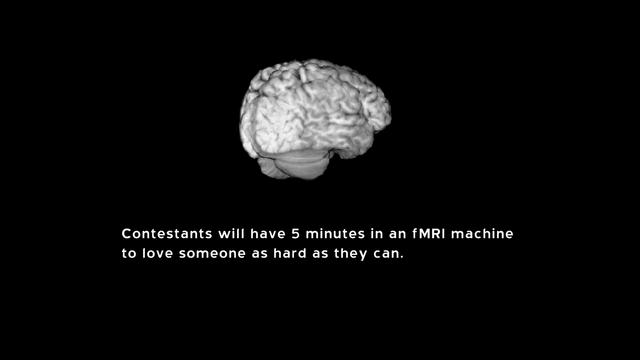I’ve just finished conducting a nine day residential training in Japanese Psychology at the ToDo Institute in Vermont. During portions of the training we put up a large piece of flip chart paper in order to create a Thank You – Sorry board. The image you see in front of you is an example of such a board after it’s been filled in. The process is really very simple. The top half of the board is reserved for notes of thanks from one person to another. The bottom half of the board is reserved for notes of apology. Throughout the day, people can walk up to the board and grab a marker and scribble a short note, either thanking someone or apologizing to them. As the board gets filled in, it becomes a record of some of the acts of kindness that have taken place that day.
-
Hard-Wired to be Kind
Linda Anderson Krech, , Kindness, Mental Wellness, ToDo Institute, children, Kindness, Making a Difference, Mental Wellness, Purpose, 4
Most of us have heard what poor predictors we are of what will make us happy. We work and...
-
NOONDAY DEVIL
Gregg Krech, , Depression, Mental Wellness, depression, Mental Wellness, 0
by Father Ron Rollheiser In Morita Therapy we consider depression, and all feelings, something which is uncontrollable by our...
-
The Opening of Gifts
Linda Anderson Krech, , Gratitude, Holidays, Mental Wellness, ToDo Institute, gratitude, Mental Wellness, Mindfulness, 1
Have you ever met anyone who doesn’t enjoy receiving a gift? It’s a universal joy. Gifts are a delightful...
-
Starting from Scratch
Gregg Krech, , Mental Wellness, Taking Action, Procrastination, 0
You’re starting with nothing. You sit down to write an essay (or novel) facing a blank screen. You sit...
-
Best Christmas Movies
Gregg Krech, , Holidays, Mental Wellness, ToDo Institute, children, holidays, Relationships, 6
There are certain movies that go a long way to adding to the holiday spirit. Our family of four...
-
Gratitude, Criticism and Attention — “You Know What Your Problem Is?”
Gregg Krech, , Attention/Mindfulness, Gratitude, Mental Wellness, Relationships, ToDo Institute, Attention, gratitude, Mental Wellness, Mindfulness, naikan, Relationships, 0
Ten years ago I presented at a Mindfulness and Psychology conference in La Jolla on the relationship between Gratitude,...
-
A Love Competition – Video
Gregg Krech, , Relationships, ToDo Institute, Mental Wellness, Neuroscience, Relationships, video, 0
Imagine there was a love competition. People competed to see who was most able to love another person. How...
-
Chef: What Can We Learn About Passion and Purpose?
Gregg Krech, , Attention/Mindfulness, Mental Wellness, Taking Action, ToDo Institute, Purpose, Taking Action, 0
Movie Review Chef – What Can We Learn About Passion and Purpose? The central character in Chef is Carl...
Categories
Thirty Thousand Days
Recent Reviews
-
Constructive Living
Rated 5 out of 5by Mitsuo Ao -
Constructive Living
Rated 5 out of 5by Elisabeth Kubler-Ross, M.D. -
How To Live Well: Secrets of Using Neurosis
Rated 5 out of 5by Henry Kahn, M.D. -
Naikan: Gratitude, Grace, and the Japanese Art of Self-Reflection, Anniversary Edition
Rated 5 out of 5by Rabbi Rami Shapiro, author of Proverbs, the Wisdom of Solomon













Comments are closed.
Hi Gregg,
Thanks for posting this video today. This board seems like a skillful tool to use with a group. And it just so happens that earlier today I was thinking ” what sort of idea from Japanese Psychology can I take to this group this afternoon?” I’m beginning 12 weeks of coaching an intern as she works with seven young adults – ages 17 – 21 in a government funded jobs readiness program. They will be together 5 days a week doing computer training, GED, job coaching and then interviewing for jobs. The Friday group will provide leadership skills, provide a planning time for a group service project and also be a space to work on their relationships with each other and address issues that come up during the week. This board seems like a perfect way to introduce the whole idea of noticing what it is you notice in relationship to others and to practice expressing thanks and regret.
Thank you again for this simple tool.
Margaret